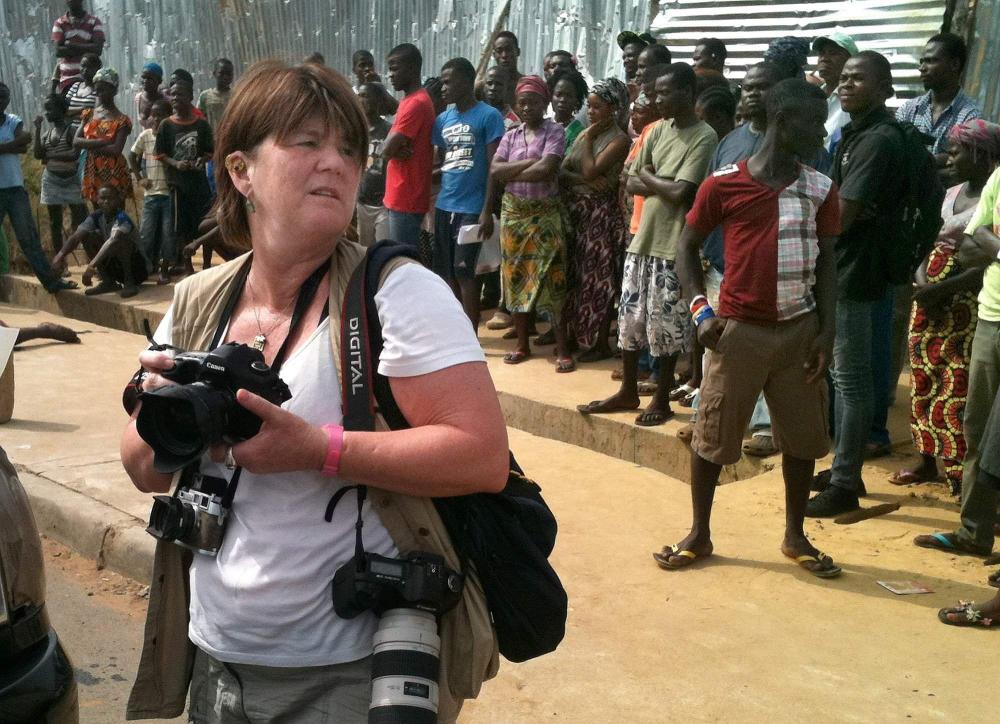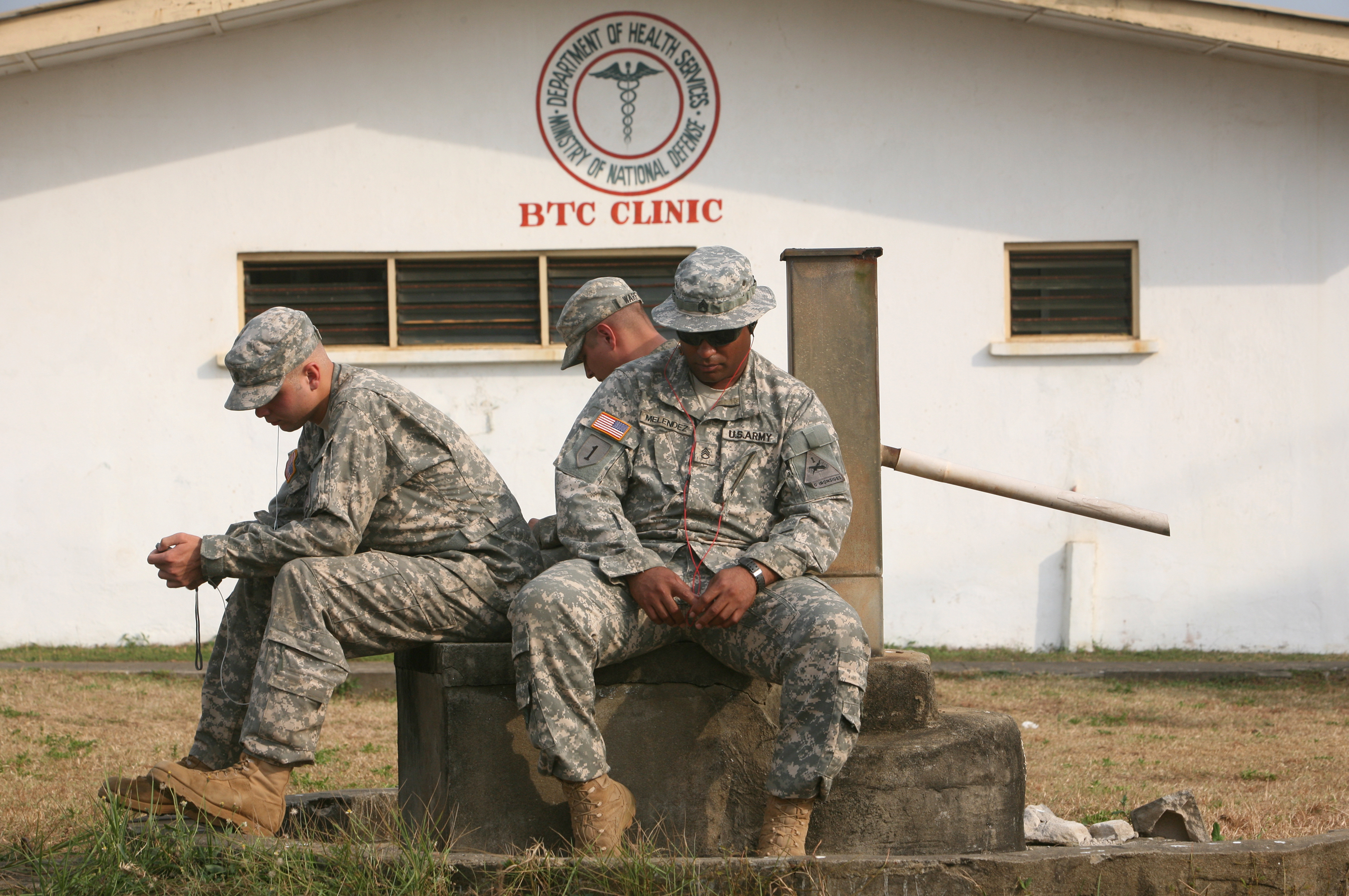
The following appeared on the editorial pages of the Erie Times-News.
Bravo for Cheryl Hatch, a photojournalist and visiting professor at Allegheny College in Meadville. On her recent semester break, she traveled to Liberia to cover the Ebola outbreak with writer Brian Castner, a U.S. Air Force veteran who had served as a commander of bomb disposal squads in Iraq.
Hatch, who has worked abroad in Somalia, Iraq, Eritrea and Liberia, embedded with U.S. troops in Afghanistan in the winter of 2011-12. For this winter break, she planned to go scuba diving in Hawaii. Instead, she opted to go to Liberia to cover a story that has largely disappeared from the headlines in our country as the African countries hard hit by Ebola have brought the epidemic under control.
For its Dec. 22 edition, Time named "The Ebola Fighters" as the magazine's Person of the Year, singling out native Africans and American health workers for their heroics. These doctors, nurses, emergency medical technicians and health educators jumped in to help stem an epidemic that the U.S. Centers for Disease Control once projected could claim as many as 1.4 million victims in Liberia and Sierra Leone.
Instead, as the Washington Post reported on Monday, the Ebola caseload in those countries has declined dramatically since September, and Ebola treatment centers built by U.S. troops sit empty in some places.
In explaining why Time focused on the "hero's heart" of Ebola workers, Nancy Gibbs, the magazine's editor, said that the health workers profiled in the magazine all had been driven to respond to the crisis despite risks to themselves. Gibbs also referred to the reaction after Liberian Thomas Eric Duncan became the first person in the U.S. to be diagnosed with Ebola. Duncan, visiting family in Dallas, later died.
"The problem with irrational responses is that they can cloud the need for rational ones," Gibbs wrote, referring to the various ways Ebola panic spread in the U.S. and abroad. The "Ebola Fighters" helped to teach the world how to respond to this medical crisis -- and how to learn from earlier mistakes.
We also learn from journalists like Hatch and Castner who dare to venture into hot zones. Their reporting helps us to understand how government and humanitarian organizations respond to crises, and they put a human face on victims, their families, their caretakers and their devastated communities.
Hatch's parents worried about her safety, and she had to remind herself about the strict precautions she had to follow. "By nature you want to high-five people and play with children, and all those natural connections are not recommended," Hatch said.
Hatch said she went to Liberia because, in the words of photographer Michel du Cille, "This is what we do." Allegheny students will absorb that lesson and benefit from her experience. The trip was funded in part by a $12,500 grant from the Pulitzer Center for Crisis Reporting. To read their stories, and to truly appreciate their work, visit http://pulitzercenter.org/project/africa-liberia-fighting-ebola-101st-a….





